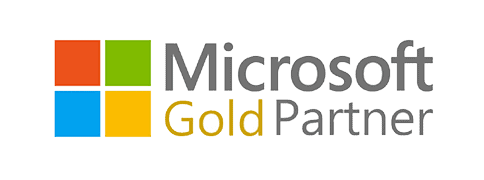
Telco ICT Group leads the industry in providing innovative business phone systems tailored to meet the evolving needs of modern enterprises. With Telco ICT Group’s forward-thinking communication solutions, businesses can harness the power of seamless connectivity to enhance productivity and drive growth.
Telco ICT Group offers technology that helps businesses communicate better and work more efficiently. They have features like smart call routing and turning voicemails into emails. No matter the size or type of business, Telco ICT Group’s tools can make a big difference.
In today’s tough market, being quick and efficient is key. That’s why teaming up with Telco ICT Group for your business phone system is so important. Their solutions can help you get more done, collaborate better, and keep your business successful.
Choosing the Right Business Phone System
Understanding Traditional PBX Systems
Traditional PBX (Private Branch Exchange) systems have been a staple in business communication for decades. These systems rely on physical hardware installed on-site to route calls within an organization. With features like call forwarding, voicemail, and extension dialing, PBX systems offer reliability and familiarity. However, they often require significant upfront investment and ongoing maintenance costs.
Embracing VoIP Technology
Voice over Internet Protocol (VoIP) technology has revolutionized business communications. VoIP systems transmit voice calls over the internet, bypassing the need for traditional phone lines. This results in significant cost savings, as calls are often cheaper, especially for international communication. VoIP systems also offer a wide range of features, including video conferencing, mobile integration, and scalability. However, VoIP quality can be affected by internet connection stability, and security concerns must be addressed to protect sensitive data.
Unlocking the Power of Cloud-Based Solutions
Cloud-based phone systems represent the latest evolution in business communication. These systems leverage cloud technology to host phone services off-site, eliminating the need for on-premises hardware. Cloud-based solutions offer unparalleled flexibility, allowing employees to make and receive calls from anywhere with an internet connection. Additionally, they often come with advanced features such as automatic call routing, CRM integration, and analytics dashboards. With subscription-based pricing models and automatic updates, cloud-based systems provide cost-effective scalability and ease of management.
Choosing the Right Solution for Your Business
When selecting a business phone system, it’s essential to consider your organization’s unique needs, budget, and long-term goals. Traditional PBX systems may be suitable for established enterprises with legacy infrastructure and a preference for on-premises control. VoIP technology offers a middle ground, combining cost savings and flexibility with the reliability of traditional phone systems. Meanwhile, cloud-based solutions are ideal for modern, agile businesses looking to future-proof their communication infrastructure and empower remote workforces.
Benefits of Modern Phone Systems
- Flexibility: Modern phone systems leverage cloud technology, enabling communication from anywhere with an internet connection. This empowers remote work, fostering collaboration across geographies and time zones.
- Scalability: Unlike traditional systems requiring costly hardware upgrades, modern phone systems are inherently scalable. Businesses can easily add or remove users, features, and phone lines as needed to meet evolving demands.
- Cost-Effectiveness: Modern systems operate on subscription-based models, eliminating upfront hardware costs and providing predictable monthly expenses. Features like virtual phone numbers and automated attendants minimize communication costs while maximizing efficiency.
Key Features for Productivity Enhancement
- Call Forwarding: Ensure no important call is missed by seamlessly redirecting incoming calls to another phone number or extension. For example, a sales rep can forward calls to their mobile, staying accessible to clients on the go, and enhancing responsiveness and customer service.
- Voicemail Transcription: Save time and simplify message management by automatically converting voicemails into text format. Busy executives can quickly prioritize urgent matters by scanning through transcribed voicemails, enhancing efficiency and eliminating the need to listen to lengthy messages.
- Auto-Attendant: Streamline call routing with an automated receptionist that guides callers with pre-recorded messages and menu options. For instance, a healthcare clinic can efficiently direct patients to different departments based on their needs, improving customer service and satisfaction.
- Call Analytics: Gain valuable insights into call activity to optimize communication processes. Analyze call volume, duration, and peak hours to identify trends and make informed decisions for enhancing productivity. For example, track the effectiveness of marketing campaigns by analyzing call volumes and conversion rates, empowering businesses to implement targeted strategies for improved workflow and efficiency.
Maximizing Mobile Productivity
Mobile accessibility is vital for modern businesses. It enables employees to respond to clients, collaborate with remote teams, and access crucial information from anywhere. This flexibility boosts productivity, enhances work-life balance, and helps businesses stay competitive by adapting quickly to market changes and customer needs.
Strategies for Optimizing Mobile Productivity:
- Business Phone System Apps: Deploying dedicated business phone system apps empowers employees to manage calls, voicemails, and contacts seamlessly from their mobile devices. These apps often offer advanced features such as call recording, call forwarding, and integration with other communication tools, enhancing efficiency and communication agility.
- Call Routing Options: Implementing intelligent call routing options ensures that incoming calls are directed to the most appropriate recipient, regardless of their location. Whether through automated attendants, interactive voice response (IVR) systems, or skill-based routing, organizations can streamline communication workflows and minimize response times, thereby maximizing productivity.
- Mobile-Friendly Features: Embracing mobile-friendly features such as text messaging, video conferencing, and document sharing facilitates real-time collaboration and decision-making, even when employees are on the move. These features enable seamless communication and information exchange, fostering teamwork and innovation across distributed teams.
Security Risks and Mitigation
- Unauthorized Access: Implement robust authentication measures like multi-factor authentication (MFA) to prevent unauthorized access.
- Data Breaches: Encrypt data, update software regularly, and conduct security audits to prevent unauthorized access and data breaches.
- Malware Attacks: Deploy antivirus solutions, educate employees on phishing tactics, and implement network firewalls to prevent malware infiltration.
Compliance Importance
- General Data Protection Regulation(GDPR) Compliance: Obtain consent, protect data integrity, and report breaches promptly to ensure compliance with GDPR.
- Health Insurance Portability and Accountability Act(HIPAA) Compliance: Implement access controls, encrypt PHI, and conduct regular risk assessments to safeguard protected health information.
Ensuring Adherence
- Policy Development: Develop comprehensive security and compliance policies tailored to business phone systems.
- Employee Training: Educate employees on security best practices and compliance regulations through regular training sessions.
- Regular Audits and Assessments: Conduct routine audits to identify vulnerabilities and compliance gaps, and address them promptly to ensure ongoing adherence to regulatory requirements.
Measuring Success and Continuous Improvement
Measuring the success of business phone systems goes beyond mere functionality; it encompasses the system’s impact on productivity and overall organizational efficiency. To ensure continuous improvement, it’s essential to define relevant metrics, gather user feedback, and leverage performance data to optimize system functionality.
Here’s how to effectively measure success and drive ongoing improvement:
Metrics for Evaluation
- Call Volume and Duration: Analyze call volume trends and average call duration to gauge system utilization and identify potential bottlenecks or areas for improvement.
- Response Times: Measure the time taken to respond to incoming calls or messages to assess customer service efficiency and identify opportunities for streamlining communication workflows.
- Customer Satisfaction Scores: Collect feedback from customers regarding their experience with the phone system to gauge satisfaction levels and pinpoint areas for enhancement.
- Employee Productivity: Assess employee productivity metrics such as call handling times, resolution rates, and overall workload to evaluate the system’s impact on workforce efficiency.
Strategies for Optimization
- User Feedback Collection: Solicit feedback from employees and customers regarding their experience with the phone system. Use surveys, interviews, or suggestion boxes to gather insights into pain points, usability issues, and feature requests.
- Performance Data Analysis: Analyze performance data collected from the phone system, such as call logs, call recordings, and service metrics, to identify patterns, trends, and areas for improvement.
- Continuous Training and Support: Provide ongoing training and support to employees to ensure they are proficient in using the phone system’s features and functionalities effectively. Address any gaps in knowledge or skill through targeted training sessions or resources.
- Regular System Updates: Keep the phone system up-to-date with the latest software updates and feature enhancements to ensure optimal performance and compatibility with evolving business needs.
- Iterative Improvement Process: Implement an iterative improvement process based on feedback and performance data. Continuously refine and optimize system configurations, workflows, and user interfaces to enhance usability, efficiency, and overall user experience.
Conclusion
Mastering business phone systems is imperative for achieving organizational success and productivity. Throughout this discussion, we’ve highlighted key considerations such as understanding traditional PBX systems, embracing VoIP technology, and unlocking the power of cloud-based solutions. Each option offers unique benefits tailored to different organizational needs, emphasizing the importance of selecting the right solution.
Furthermore, modern phone systems offer flexibility, scalability, and cost-effectiveness, enhancing communication processes and maximizing productivity. Features like call forwarding, voicemail transcription, and call analytics empower organizations to streamline workflows and optimize efficiency.
To ensure adherence to security and compliance standards, businesses must implement robust authentication measures, encrypt data, and conduct regular audits. By prioritizing security and compliance, organizations can safeguard sensitive information and build trust with customers.
Lastly, continuous improvement is essential for optimizing phone system functionality and driving organizational success. By defining relevant metrics, gathering user feedback, and leveraging performance data, businesses can identify areas for improvement and implement targeted strategies for ongoing enhancement.
Therefore, I urge businesses to prioritize investment in inefficient communication tools and strategies, empowering their workforce and driving sustained success in today’s dynamic business environment. Together, let’s ring in success by mastering telecommunication solutions for enhanced productivity and growth.
Table of contents
Related Posts
We’ll handle the tech
so you can get on with
running your business.

CALL US
1300 414 214
Our Trusted Partners
Contact Us
Let’s Talk
Common Questions
Do you outsource your work overseas?
No. We use local teams only. That way we can respond more quickly to any problems that may occur. We want your tech running smoothly so you can focus on what you do best.
Is your support 24 hours?
Yes. We have people available whenever you need us. We understand that your tech runs 24 hours, and you need it be working at all times.
Are your services customised for my business?
Yes. There is great off the shelf software. But we know one size never fits all. So anything we set up for you is designed to make your business run smoother and in the way you want it to.
Are your services expensive?
No. Reliable tech is the life blood of your business. We keep it running smoothly so your business can keep making money. All our services are fixed fees, so you never get any nasty surprises.
What’s the next step?
Simply book a chat with one of our experts. We’ll have a chat about exactly what you need and how we can help. If you like our approach then we’ll give you a fixed price quote and get everything up and running for you, fast!








